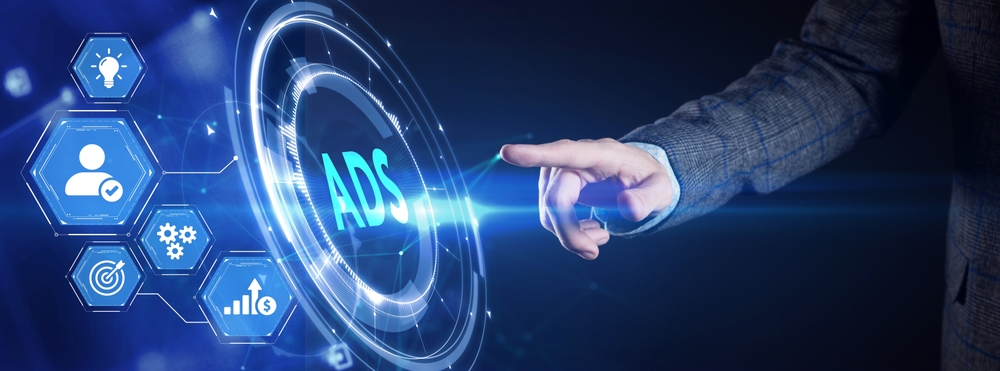Artificial intelligence (AI) is reshaping the landscape of digital marketing and advertising, offering unprecedented opportunities for marketers to optimize their campaigns and deliver highly targeted ads. AI-driven tools enable real-time analysis, precise targeting, and automatic optimization, helping marketers reach the right audience at the right time. For tech-savvy professionals, understanding how AI enhances ad targeting and optimization is essential for staying competitive in today’s digital world. Here’s how AI is transforming the way ads are targeted and optimized.
How AI Enhances Ad Targeting
- Data-Driven Audience Insights
AI can process and analyze vast amounts of data from various sources, such as browsing history, social media activity, purchasing behavior, and demographic information. By using machine learning algorithms, AI identifies patterns in user behavior and creates detailed audience profiles. These insights allow marketers to target specific audience segments with relevant ads, ensuring that the right message reaches the right person.
- Lookalike Audience Targeting
AI-powered platforms enable lookalike audience targeting, which involves identifying new potential customers who exhibit similar behaviors and characteristics to your existing customers. By analyzing your current customer data, AI can find lookalike audiences that are more likely to engage with your brand, increasing the effectiveness of your campaigns and improving conversion rates.
- Predictive Targeting
Predictive targeting uses AI algorithms to predict which users are most likely to engage with your ads or convert. By analyzing historical data and user behavior, AI can forecast future actions, enabling marketers to target users who are more likely to take the desired action, such as making a purchase or signing up for a service. This level of precision targeting reduces wasted ad spend and boosts overall campaign performance.
- Contextual Targeting
AI enables contextual targeting by analyzing the content of web pages and matching ads to the context in which they will appear. This ensures that ads are relevant to the surrounding content, increasing the likelihood of engagement. For example, AI can automatically place ads for sports equipment on sports-related articles or videos, enhancing ad relevance and improving click-through rates (CTR).
AI-Driven Ad Optimization
- Real-Time Bidding Optimization
AI plays a critical role in real-time bidding (RTB) by analyzing millions of data points and adjusting bids on the fly to maximize ad performance. AI algorithms assess user behavior, device type, time of day, and other variables to determine the best bid for each impression. This real-time optimization ensures that your budget is spent efficiently, delivering ads to the users most likely to convert.
- Dynamic Creative Optimization (DCO)
Dynamic creative optimization uses AI to automatically generate and customize ad creatives based on user data and behavior. AI analyzes data points such as location, interests, and previous interactions to create personalized ads for each user. For example, an online retailer can display ads showing products a user has previously viewed or similar items they might be interested in. This personalization increases relevance, engagement, and conversion rates.
- Automated A/B Testing
AI simplifies A/B testing by automating the process of testing different ad variations. AI can quickly analyze the performance of multiple ad creatives, targeting strategies, and bidding approaches, identifying which combinations yield the best results. By continuously optimizing ad elements in real time, AI helps maximize the effectiveness of your campaigns without the need for manual intervention.
- Budget Optimization
AI algorithms can automatically optimize ad budgets by reallocating funds to high-performing campaigns and reducing spend on underperforming ones. This ensures that your advertising dollars are invested where they will have the greatest impact. AI-driven budget optimization enables marketers to maximize their return on investment (ROI) and avoid overspending on ineffective campaigns.
- Campaign Scalability
AI makes it easier to scale ad campaigns by automating various aspects of ad management. As your campaigns grow, AI can handle larger datasets, optimize more variables, and deliver personalized ads at scale without requiring additional manual effort. This scalability is especially beneficial for businesses running large, multi-channel campaigns across different regions or audience segments.
How to Implement AI in Ad Targeting and Optimization
- Leverage AI-Powered Ad Platforms
To take full advantage of AI, leverage AI-powered platforms such as Google Ads, Facebook Ads, and programmatic advertising tools. These platforms use machine learning algorithms to optimize targeting, bidding, and ad delivery in real time, helping you achieve better results with less manual effort.
- Utilize Audience Data
Make sure you are collecting and analyzing audience data across all available channels, including your website, social media, CRM, and third-party sources. AI thrives on data, so the more relevant information you provide, the better your targeting and optimization efforts will be.
- Implement Dynamic Ads
Use dynamic ads to create personalized experiences for your audience. Dynamic creative optimization (DCO) allows AI to adjust ad content in real time, making your ads more relevant and increasing engagement.
- Automate Reporting and Insights
Take advantage of AI-powered analytics tools to automate reporting and gain real-time insights into campaign performance. These tools can help identify trends, detect anomalies, and offer recommendations for further optimization.
At Advida, we use AI-driven tools to optimize our ad campaigns, improve targeting accuracy, and enhance performance across all digital platforms. By leveraging artificial intelligence for audience insights, real-time optimization, and personalized ad experiences, we are able to deliver more effective and efficient marketing strategies. Implementing AI in your ad targeting and optimization processes can help you maximize ROI, reduce costs, and scale your campaigns with ease. Embrace AI to unlock the full potential of your digital advertising efforts.



